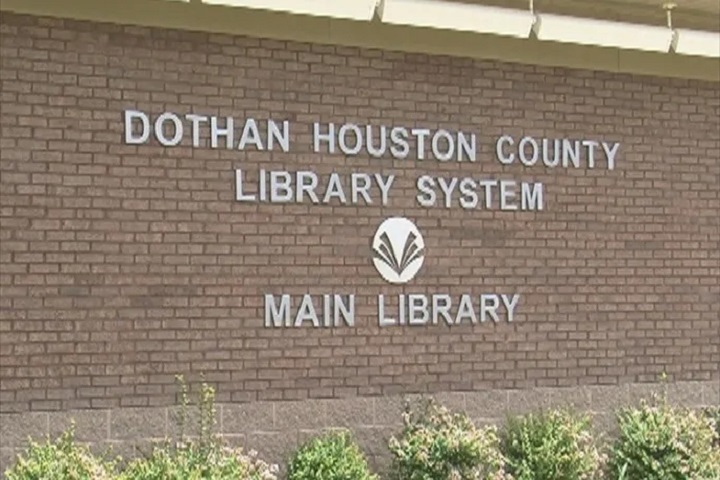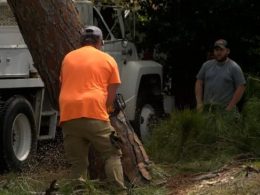DOTHAN, Ala. — Libraries across Alabama, particularly those in rural regions like the Wiregrass, could face significant challenges as the Institute of Museum and Library Services (IMLS) is among seven federal agencies targeted for funding cuts in a recently signed executive order by President Trump. If these cuts are enacted, it could drastically impact public libraries’ ability to serve their communities, especially in more remote areas.
Chris Warren, Director of the Dothan-Houston County Library System, expressed concern over the potential cuts, emphasizing the severe consequences they could have on rural libraries. “The impact would be significant for all libraries, but more severe and adverse for rural libraries in Alabama,” Warren said.
The IMLS provides essential annual grants to Alabama’s public library service, which in turn distributes the funds to more than 220 libraries statewide. Alabama receives approximately $3 million each year in IMLS funding, which helps these libraries supplement their budgets and improve services. For example, the Dothan-Houston County Library System, which operates with a combined budget of about $1.3 million from the city, state, and county, often relies on federal grants to fund special projects and cover costs not met by the main budget.
Warren explained that the library has previously used grant funding for upgrades, such as enhancing circulation and checkout systems, and expanding its eBook collection. Without federal support, these essential services could be in jeopardy. “We’ve applied for up to $40,000 to upgrade circulation and checkout machines, and as much as $10,000 for eBook collections, which can be costly,” Warren said.
For smaller rural libraries, such as the McGregor-McKinney Library in Hartford, the loss of IMLS grants could be particularly devastating. Warren warned that these libraries would struggle to maintain critical programs, such as the summer reading initiative, which plays a crucial role in helping children retain reading skills and avoid academic setbacks. Additionally, libraries that serve as access points for technology and essential services would be affected. “In small rural towns where broadband access is limited, the library might be the only place where residents can find medical information, access government services, or apply for jobs,” he said.
In response to the proposed funding cuts, libraries have turned to social media to rally support from the community. The McGregor-McKinney Library’s staff urged local residents to contact federal and state legislators, including Senators Tommy Tuberville and Katie Britt, and Congressman Barry Moore, to voice their concerns. “Please contact our federal and state legislators and let them know how important the library is to you and your children,” the library’s staff wrote in a Facebook post.
Warren and other library officials have stressed the importance of public support in securing continued federal funding. They highlighted the potential loss of statewide programs such as Homework Help Alabama, a tutoring service, and the Library for the Blind and Physically Handicapped, both of which could be jeopardized by the funding cuts. “We really want people to tell their stories about why libraries are important to them and how they impact their families and communities,” Warren said.
As the debate over funding cuts continues, libraries across Alabama are hoping that the community’s voices will make a difference in preserving the essential services they provide to millions of residents.









